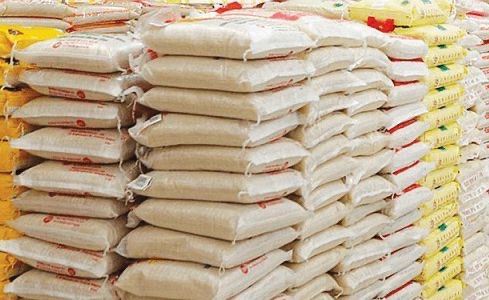The Federal Government of Nigeria has announced the commencement of the sale of 30,000 metric tonnes of milled rice to citizens at a subsidized rate of ₦40,000 per 50kg bag. However, the government specified that only buyers with a valid National Identification Number (NIN) will be eligible to benefit from this initiative.
This directive is part of the government’s effort to provide relief to Nigerians amidst rising food prices and economic challenges. The subsidized rice sale aims to cushion the effects of inflation on the average Nigerian household by making staple food more affordable.
Speaking during the announcement, a representative from the Ministry of Agriculture and Rural Development stated, “This initiative is part of the Federal Government’s broader strategy to address food security and support Nigerians during these tough economic times. However, to ensure the process is well managed and benefits genuine citizens, only those with valid NINs will be allowed to purchase the subsidized rice.”
The government disclosed that the sale will be conducted across various distribution points nationwide, with priority given to urban centers and regions heavily impacted by food inflation. Buyers will be required to present their NIN at designated sales points to verify their eligibility.
The announcement has generated mixed reactions from the public. While some commend the government for its intervention in the food market, others raise concerns over the requirement of a NIN to access the subsidized rate. Critics argue that this restriction might exclude vulnerable groups who may not have easy access to NIN registration or possess the identification.
“This is a good step, but I hope the government also considers how this NIN requirement could limit access for some people who genuinely need this subsidized food,” commented a concerned citizen.
READ ALSO: Transport Fares Surge by 50% Nationwide Amid Rising Petrol Prices
The government, however, defended the measure, emphasizing that the NIN requirement is necessary to prevent abuse and ensure that the subsidized rice reaches the intended beneficiaries. The use of NIN also aims to promote transparency and accountability in the distribution process.
The sale of subsidized rice comes at a critical time when Nigerians are grappling with high food prices, exacerbated by inflation and other economic pressures. As the distribution gets underway, the government is expected to monitor the process closely to address any challenges and ensure a smooth rollout.
The subsidized rice program is a temporary measure, and the government has hinted at exploring other long-term strategies to stabilize food prices and ensure food security for all Nigerians.










